"In the Hope of Eternal Life" -- Titus 1:1-4
 Sunday, September 15, 2019 at 03:23PM
Sunday, September 15, 2019 at 03:23PM 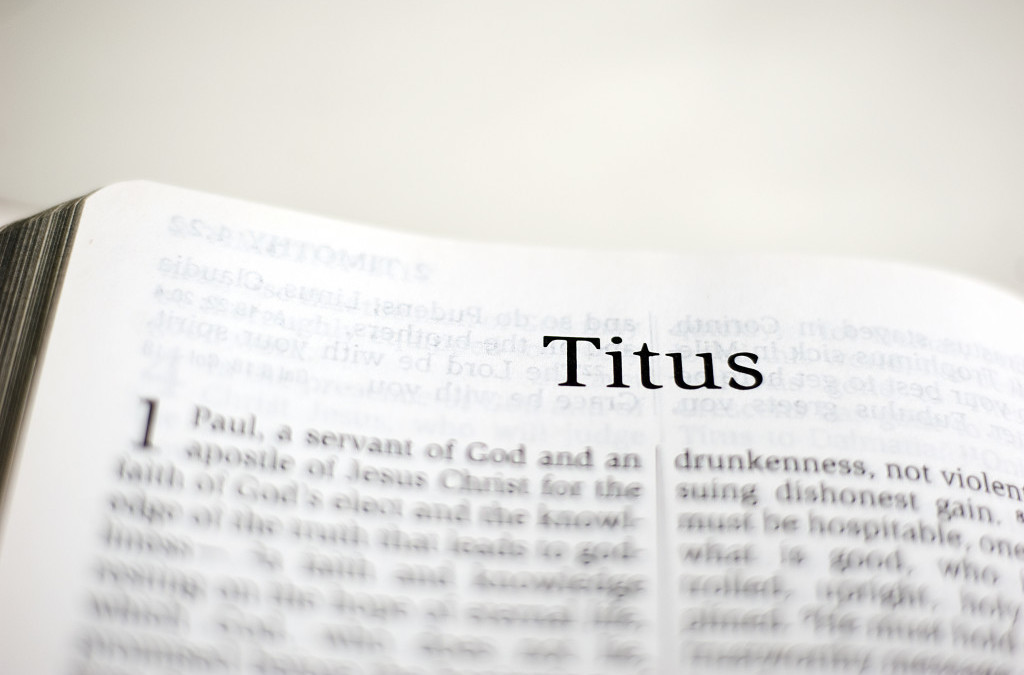
Here's the audio from this morning's sermon, the twelfth in a series on Paul's letters to Timothy and Titus:
Living in Light of Two Ages
____________________________
 Sunday, September 15, 2019 at 03:23PM
Sunday, September 15, 2019 at 03:23PM 
Here's the audio from this morning's sermon, the twelfth in a series on Paul's letters to Timothy and Titus:
 Monday, September 9, 2019 at 10:39AM
Monday, September 9, 2019 at 10:39AM 
Sunday Morning, September 15: We move on to the Book of Titus in our series on Paul's letters to Timothy and Titus. We'll address the "who?" "when?" "why?" and "what?" questions, before taking up God's faithfulness in keeping his promises. Our worship service begins at 10:30 a.m.
Afternoon Service: We take up Lord's Day 9 (Q 26) of the Heidelberg Catechism. We will be discussing God as Father (one of the most beloved questions and answers in the catechism). Our afternoon service begins at 1:15 p.m.
New Members Classes begin, Sunday, September 29 @ 9:00 a.m.
Wednesday Night Bible Study: Resumes on Wednesday, September 18. Our new series is entitled, "The Future--What Remains to be Fulfilled in Biblical Prophecy?"
Friday Night Academy: Resumes on September 27. We'll return to our study of Michael Horton's theology text, "The Christian Faith."
For more information on Christ Reformed Church you can always find us here Christ Reformed Church, or Christ Reformed on Facebook.
 Sunday, September 8, 2019 at 03:15PM
Sunday, September 8, 2019 at 03:15PM 
Here's the audio from this morning's sermon, the eleventh in a series on Paul's letters to Timothy and Titus:
 Monday, September 2, 2019 at 10:14AM
Monday, September 2, 2019 at 10:14AM 
Sunday Morning, September 8: We wrap up our time in Paul's first letter to Timothy as we consider Paul's closing remarks to Timothy, "fight the good fight of faith" (1 Timothy 6:11-21). Our worship service begins at 10:30 a.m.
Afternoon Service: We are covering Lord's Day 8 (Qs 24-25) of the Heidelberg Catechism. We will address the structure of the Apostles Creed and briefly survey the doctrine of the Trinity. Our afternoon service begins at 1:15 p.m.
New Members Classes begin, Sunday, September 29 @ 9:00 a.m.
Wednesday Night Bible Study: Resumes on Wednesday, September 18. Our new series is entitled, "The Future--What Remains to be Fulfilled in Biblical Prophecy?"
Friday Night Academy: Resumes on September 27. We'll return to our study of Michael Horton's theology text, "The Christian Faith."
For more information on Christ Reformed Church you can always find us here Christ Reformed Church, or Christ Reformed on Facebook.
 Sunday, September 1, 2019 at 04:41PM
Sunday, September 1, 2019 at 04:41PM 
Here's the audio from this morning's sermon, the tenth in a series on Paul's letters to Timothy and Titus: Godliness with Contentment -- 1 Timothy 6:3-10
 Monday, August 26, 2019 at 09:32AM
Monday, August 26, 2019 at 09:32AM 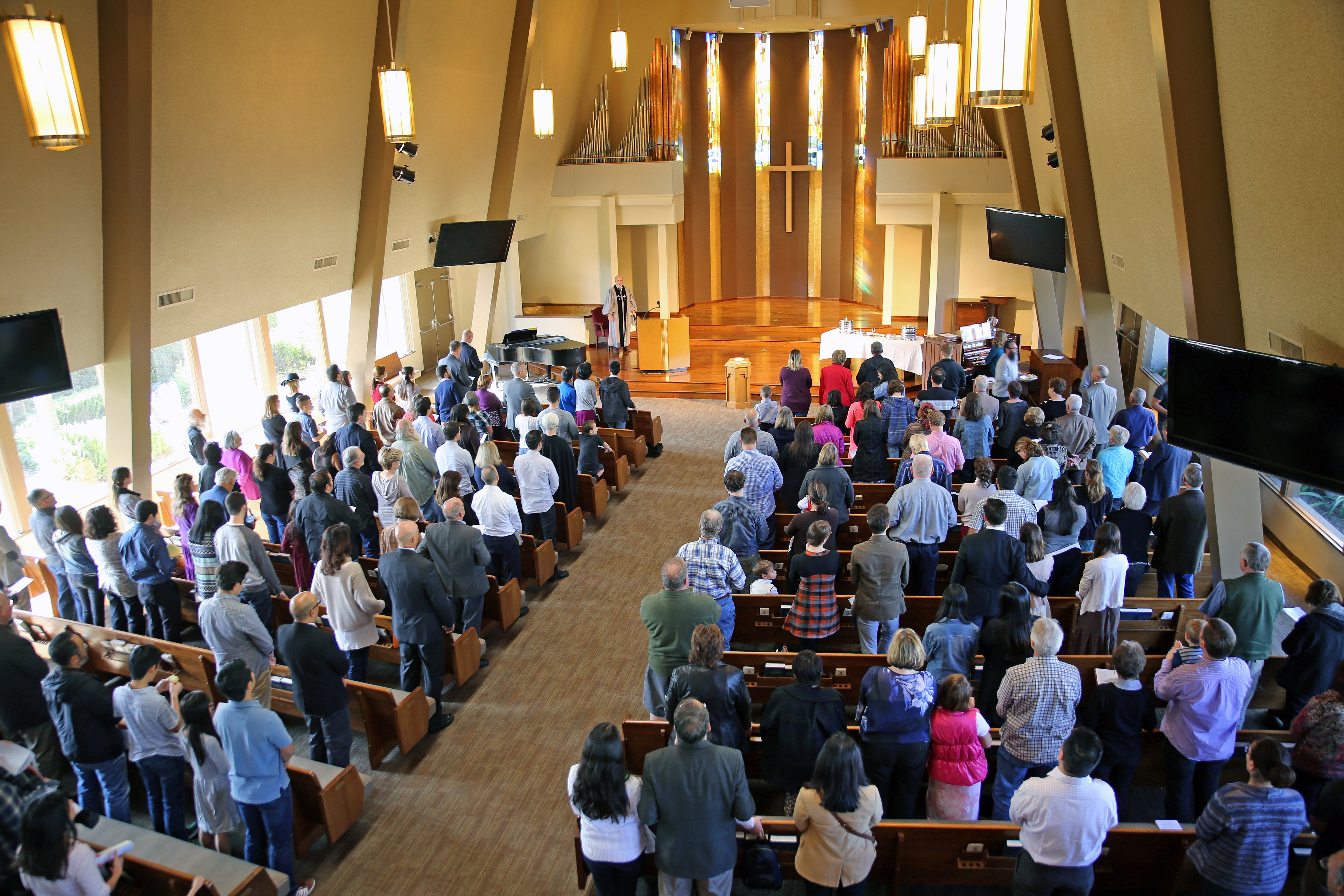
Sunday Morning, September 1: We return to our series on Paul's letters to Timothy and Titus. This Lord's Day, we will address Paul's exhortation to seek godliness and contentment (1 Timothy 6:3-10). Our worship service begins at 10:30 a.m.
Afternoon Service: We are covering Lord's Day 7 of the Heidelberg Catechism. We will discuss Q 21, and the Catechism's definition of "faith." Our afternoon service begins at 1:15 p.m.
Wednesday Night Bible Study: Resumes on Wednesday, September 18. Our new series is entitled, "The Future--What Remains to be Fulfilled in Biblical Prophecy?"
Friday Night Academy: Resumes on September 27. We'll return to our study of Michael Horton's theology text, "The Christian Faith."
For more information on Christ Reformed Church you can always find us here Christ Reformed Church, or Christ Reformed on Facebook.
 Saturday, August 17, 2019 at 08:29AM
Saturday, August 17, 2019 at 08:29AM 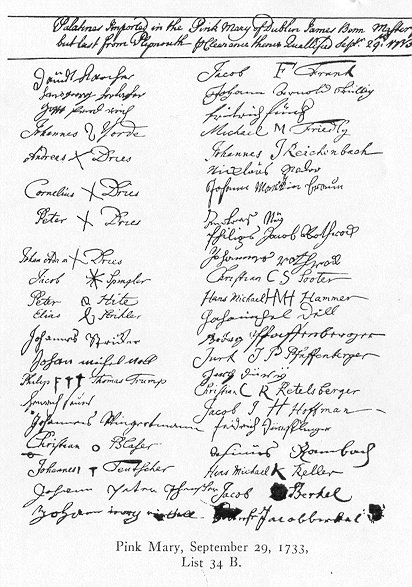
I have posted an updated version of "Five Generations of The Descendents of Christian Reteleberger (Rotlisperger)." Christian arrived in the New World in September of 1733, and placed his initials in the ship's log (Pink Mary). See above.
I hope to continue to find new cousins (I have found over 50 so far since I first posted this in 2011!) and to dispell several long standing errors regarding the Riddlebarger family history--i.e., that Christian was in someway connected to the Georgia Salzburgers--he wasn't.
I've also included a "DNA" synopsis, which ties together the Riddlebargers of Virginia and Ohio, my line, as well as all other Riddlebergers, Riddlesbergers, and Riddlespurgers. We are all descendents of Christian Retelsberger (Riddlespurger) who, as DNA testing has established, was himself a descendent of the "Rotlisperger" family of Bern.
You can find the documents here: Riddlebarger Family History
 Friday, August 2, 2019 at 04:21PM
Friday, August 2, 2019 at 04:21PM Perhaps no one in the history of the Christian church gets as much bad press (dare I say "fake news") as does John Calvin.
Many people take Will Durant's ill-founded assessment as fact (that Calvin was cold, cruel, heartless, and directly responsible for the death of arch-heretic Michael Servetus). There are far too many anti-Calvinist preachers, who, having never read a word from any of Calvin's works, and who know nothing about him, pronounce their heated anathemas and scorn upon him. These anathemas are all many evangelicals know about the Genevan Reformer.
There are also those with principled disagreements regarding various aspects of Calvin's ministry and theology (such as our Lutheran friends), who do get things wrong which they ought not.
It is always worth the effort to read as much from Calvin's pen as you can, starting with his Institutes of the Christian Religion. But it is equally important to learn more about Calvin from scholars who are well informed, reasonably sympathetic, and concerned that the John Calvin of history is not lost to myth and legend.
Basic Biographies
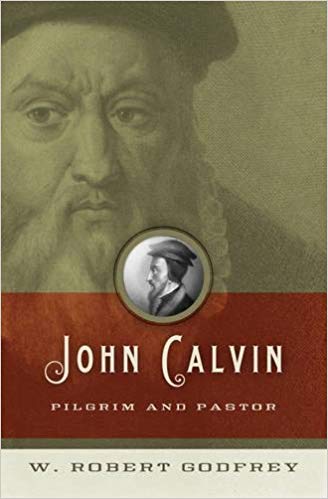
Robert Godfrey's biography of Calvin is the one book you should read about Calvin. Dr. Godfrey places Calvin in that context with which Calvin himself would identify--a scholar working in pastoral ministry. This is a readable, interesting, and important book. Godfrey introduces us to John Calvin the pastor, whose life was devoted to preaching the gospel and caring for Christ's flock--not the usual, but the proper assessment. Calvin: Pilgrim and Pastor
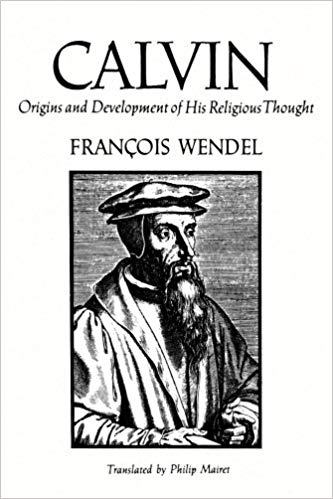
This book may be hard to find at a reasonable price (there are plenty of used copies floating around). I think this is still the best single volume introduction to Calvin's life and theology. It is very well-written, and covers the basic biographical details, as well as many of Calvin's doctrinal formulations. Calvin -- Wendel
Scholarly Studies of Calvin
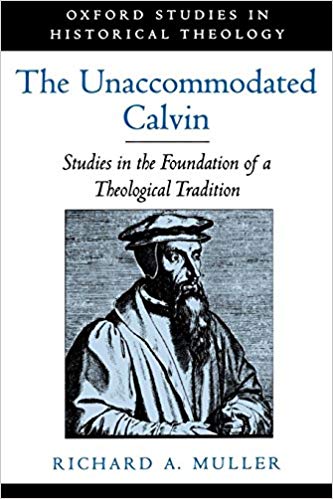
Richard Muller is the most authoritative Calvin scholar around. It has been my privilege to have studied under him. Muller absolutely destroys the arguments of those (many of whom should know better) who attempt to drive a wedge between Calvin (the biblical theologian) and the later Calvinists (of federal theology as found in the Reformed scholastics, and in the Westminster Standards). Muller can be tough going, but he is always worth the effort. This one not for the faint of heart, nor is it inexpensive. The Unaccommodated Calvin
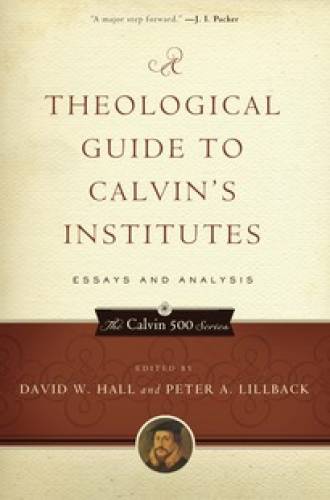
This is a series of essays from contemporary Reformed luminaries about various aspects of Calvin's thought as set out in his Institutes. Some essays are better than others, but I'll take the fifth if you ask me more. Well worth reading nonetheless (but only after you've read the Institutes). Guide to Calvin's Institutes
Calvin Studies Too Good Not to Mention
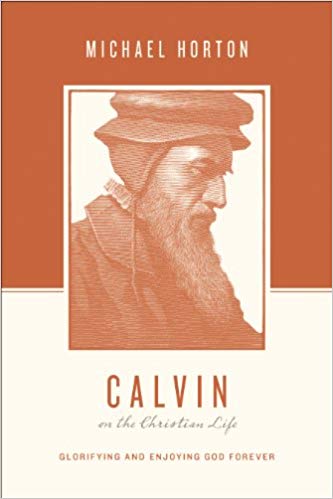
This book is a real gem. Michael does a great job of setting out Calvin's suprisingly warm piety, which grows out of Calvin's understanding of our union with Christ. Michael draws extensively from Calvin's Commentary on the Psalms. One cannot read this without finding one's own heart softened, and in turn motivated to greater levels of devotion to Christ and to the piety which results. Calvin on the Christian Life
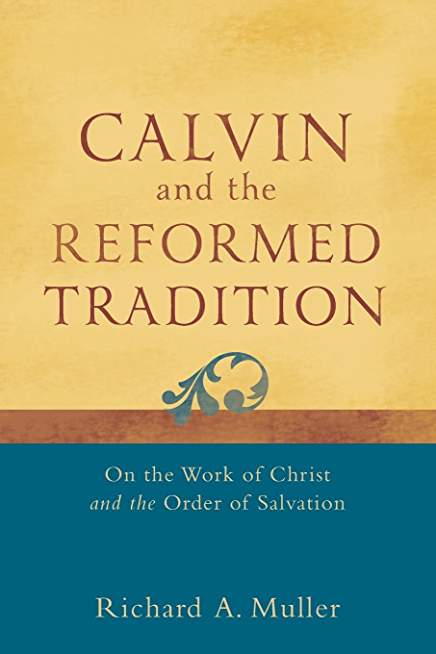
If you are interested in questions surrounding the ordo salutis (order of salvation), and its development in Calvin and the subsequent Reformed tradition, then prepare for the feast which awaits you. This is Muller at his best. Muller--Calvin and the Reformed Tradition
Previous Posts in this Series:
What Should I Read to Learn More About the End Times?
What Should I Read to Learn About the Refomed Confessions?
What Should I Read to Learn More About the Lord's Supper?
What Should I Read to Learn More About Infant Baptism?
What Should I Read to Learn More About Covenant Theology?
 Friday, July 26, 2019 at 09:17AM
Friday, July 26, 2019 at 09:17AM
Since I write and often lecture in the field of eschatology, I am often asked "what should I read to learn more about the end times?" In answering this question, I do not recommend books which predict the future in light of current events. I am not a fan of the "prophecy pundit" genre.
The resources which follow are primarily biblical-exegetical volumes, which present and defend "Reformed" amillennialism--a view which is biblical, simple and straight-forward. Reformed amillennialism affirms that the central eschatological event predicted in the New Testament is that Jesus Christ will return bodily at the end of the age to raise the dead, judge the world, and usher in the new heaven and earth.
"Reformed" amillennialism is unique from other varieties of amillennialism, in that an effort is made to understand eschatology in the light of classical Reformed covenant (or federal) theology.
Comprehensive Studies of Amillennial Eschatology:
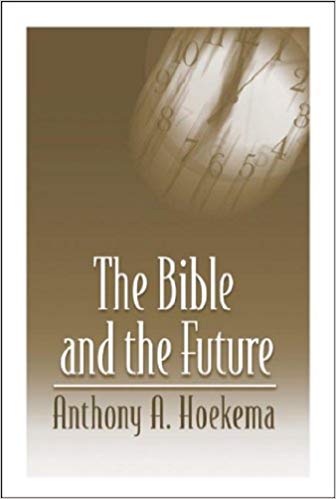
Anthony Hoekema's The Bible and the Future is the best place to begin. Hoekema's book is well-organized and covers the subject thoroughly, including a study of the nature of biblical eschatology (the very essence of biblical revelation), the events surrounding the return of Jesus Christ, the intermediate state ("where did grandma go when she died?"), to comparative eschatology--stating and defending Reformed amillennialism in dialogue with opposing views. Hoekema's book was important in my journey out of dispensationalism. It is highly recommended.
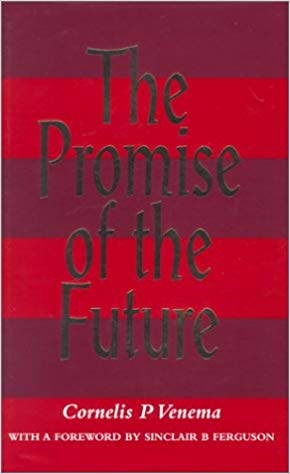
Cornel Venema's The Promise of the Future is similar in content and layout to Hoekema's volume (the full range of eschatology is covered). It too is outstanding, and quite useful in making the biblical/historical case for Reformed amillennialism.
Presentations of Reformed Amillennialism
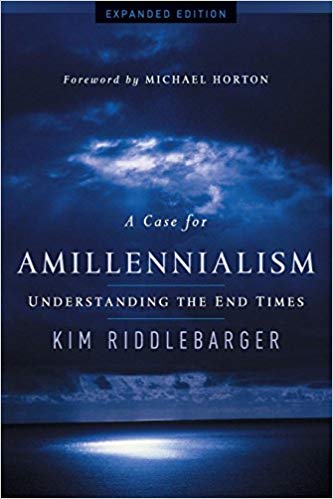
This is my effort to make the best (and simplest) possible case for the biblical basis for Reformed amillennialism. Narrower in focus than Hoekema's and Venema's volumes, this book was written in light of my own journey to amillennialism. My main argument is the "two-age model." By the way, if you are reading it with proper spiritual understanding, you should get the second blessing by the time you get to chapter three.
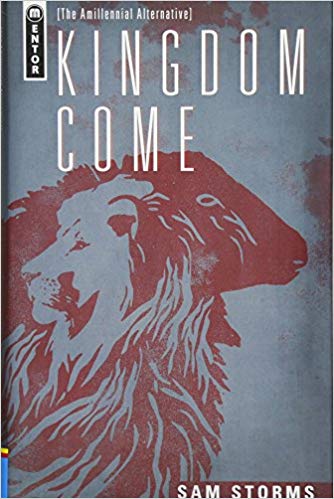
This book is must reading for anyone who was trained (say, in a Bible college or seminary setting) in dispensational eschatology. Dr. Storms is a graduate of Dallas Theological Seminary, and studied under the landmark dispensationalist theologians (including Walvoord and Pentecost), and knows first-hand the weaknesses and biblical problems with the dispensational system.
I do have a couple of caveats in recommending this book. Storms does not embrace classical Reformed covenant theology, which I think weakens his case (although overall Storms' case is compelling). My second caveat is that Dr. Storms holds a rather quirky view of Daniel's fourth kingdom (seeing it as Greece, not Rome). This undercuts important background to the way New Testament writers view the Roman empire as the beast of Revelation.
Despite the caveats, if you were trained as a dispensationalist, this is must reading. Kingdom Come
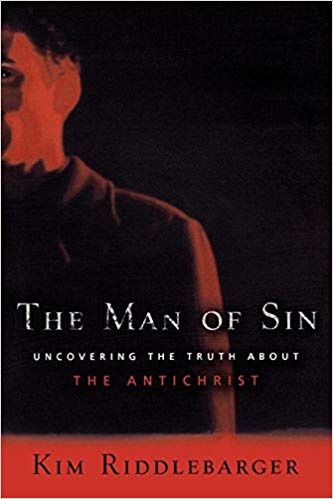
One of the most fascinating sub-plots throughout redemptive history is Christ (the Messiah) versus Antichrist. This volume is an attempt to apply amillennial eschatology to one of the most controversial (and misunderstood) areas of biblical eschatology.
Will there be an end-times Antichrist? I say "Yes." The Man of Sin
Previous Posts in this Series:
What Should I Read to Learn About the Refomed Confessions?
What Should I Read to Learn More About the Lord's Supper?
 Friday, July 19, 2019 at 09:02AM
Friday, July 19, 2019 at 09:02AM 
Before
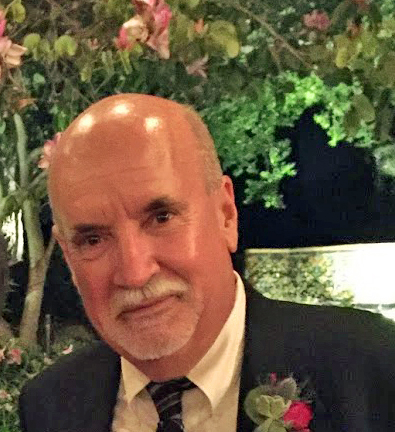
After
This App didn't work at all!
For man about to turn 65 . . . nothing to see here . . .
But I do think baseball legend, Satchel Paige, was right when he quipped, "if you didn't know how old you was, how old would you be?"